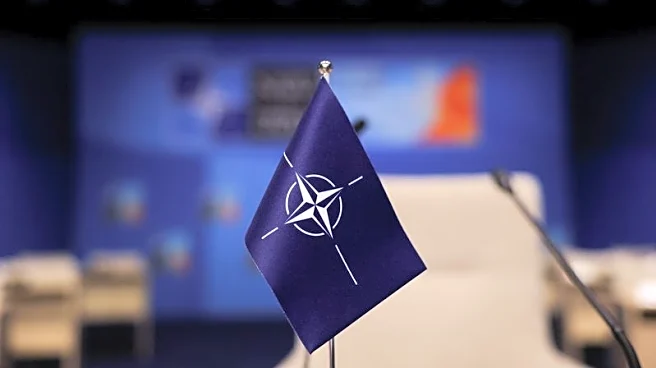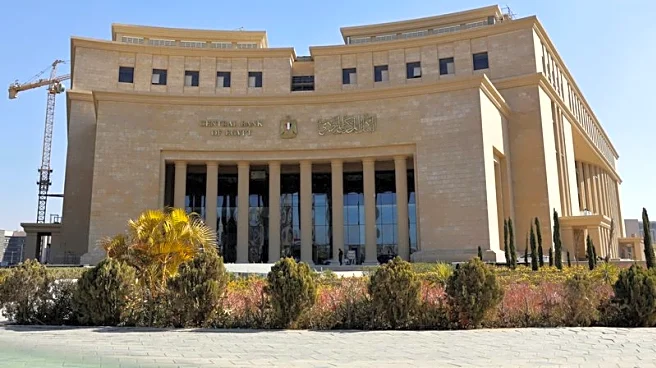What's Happening?
The United Arab Emirates has expressed concerns over the influence of Qatar and Turkey in the stabilization efforts in Gaza. Anwar Gargash, the UAE Presidential Advisor, stated that the UAE has not yet
seen a clear framework for the stabilization force, making it unlikely for the country to participate under current circumstances. The involvement of Turkish and Qatari entities, perceived as 'Hamas-enablers,' has raised alarms within the UAE regarding the potential impact on regional stability and security. The UAE's stance reflects broader geopolitical tensions in the Middle East, where alliances and rivalries often influence diplomatic and humanitarian initiatives.
Why It's Important?
The UAE's concerns highlight the complex geopolitical dynamics in the Middle East, where the influence of Islamist groups and their supporters can affect regional stability. The involvement of Qatar and Turkey in Gaza could potentially shift power balances, impacting peace efforts and humanitarian aid distribution. The UAE's reluctance to participate without a clear framework underscores the need for transparent and coordinated international efforts to address the humanitarian crisis in Gaza. This situation could affect diplomatic relations among Middle Eastern countries and influence broader international policies regarding conflict resolution and peacekeeping.
What's Next?
The UAE's decision not to participate in the Gaza stabilization efforts without a clear framework may prompt other countries to reassess their involvement. International stakeholders, including the United Nations and regional powers, may need to engage in diplomatic discussions to establish a comprehensive and inclusive plan for Gaza's stabilization. The situation could lead to increased diplomatic activity, with countries seeking to balance humanitarian needs with geopolitical interests. The outcome of these efforts may influence future peace initiatives and the role of international organizations in conflict zones.
Beyond the Headlines
The UAE's concerns about Islamist influence in Gaza reflect broader issues of ideological and political divisions in the Middle East. The involvement of Qatar and Turkey, known for their support of Islamist groups, could exacerbate existing tensions and complicate efforts to achieve lasting peace. This situation highlights the challenges of navigating complex alliances and rivalries in the region, where religious and political ideologies often intersect with national interests. The implications of these dynamics extend beyond Gaza, potentially affecting regional security and international relations.










